#André Bazin
Text
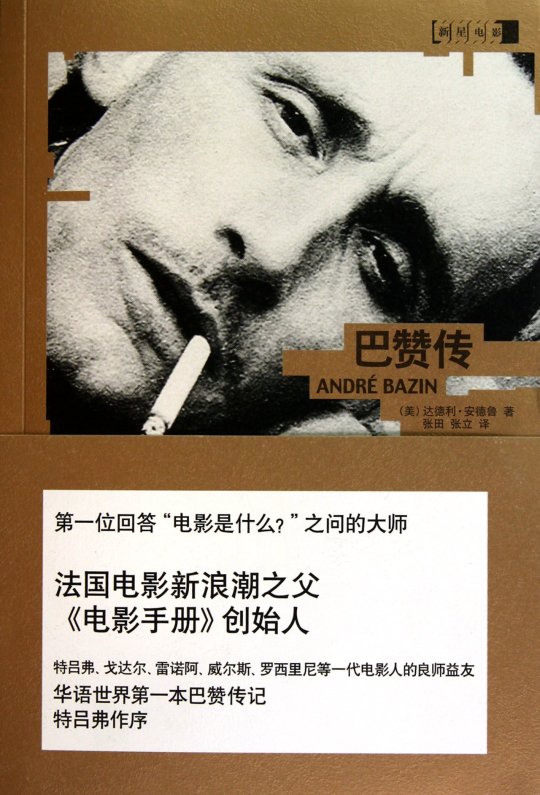
André Bazin, April 18, 1918 – November 11, 1958.
10 notes
·
View notes
Text

In una psicanalisi delle arti plastiche la pratica dell’imbalsamazione potrebbe essere ritenuta come un fatto fondamentale della loro genesi. All’origine della pittura e della scultura, ci sarebbe così “il complesso” della mummia.
André Bazin
7 notes
·
View notes
Text






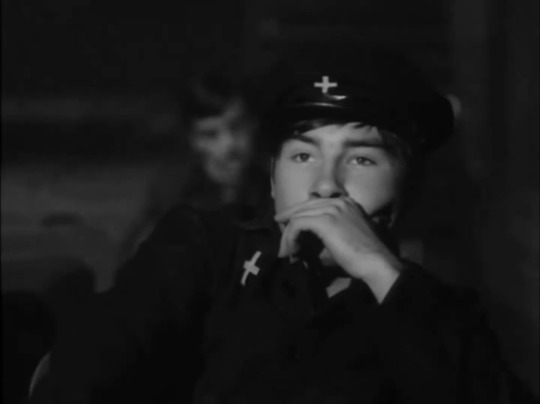
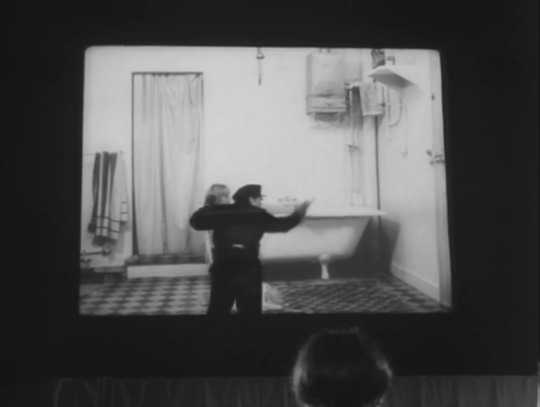
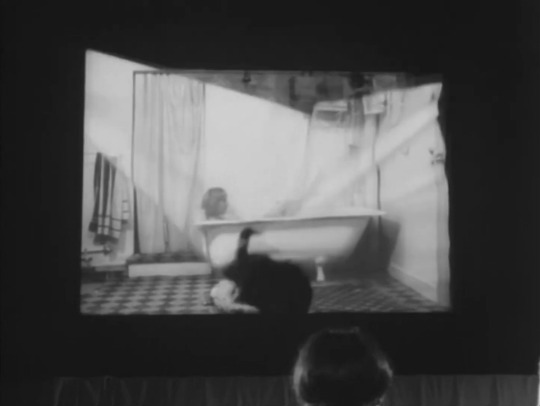




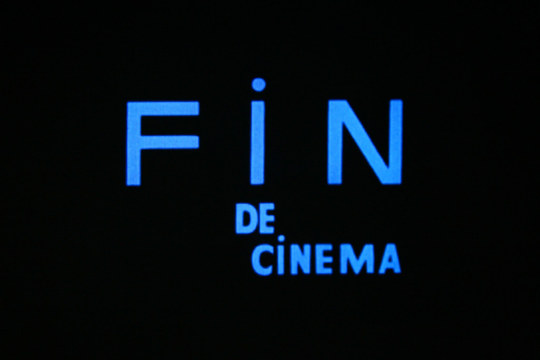
Le Mépris (1963), Les Carabiniers (1963), Masculin Féminin (1966) Weekend (1967)
Dir. Jean-Luc Godard
#jean luc godard#french new wave#nouvelle vague#60s#contempt#le mépris#le mepris#jean pierre leaud#french cinema#cinema#masculin feminin#weekend#les carabiniers#andré bazin
18 notes
·
View notes
Text
LES ARTISANS DE LA NOUVELLE VAGUE
LES ARTISANS DE LA NOUVELLE VAGUE
Après des années d’effort, demeurés à peu près vains depuis 1945, de jeunes réalisateurs français réussirent enfin à se faire remarquer en faisant irruption dans le monde cinématographique avec une énergie sans précédent. L’apparition soudaine en 1959 de la nouvelle vague mit le monde cinématographique en émoi. Ce fut une extraordinaire explosion d’activité créatrice : en dix-huit mois, une…

View On WordPress
#agnes varda#alexandre astruc#andré bazin#éric rohmer#chris marker#claude chabrol#eric rohmer#françois reichenbach#françois truffaut#jacques doniol valcroze#jacques rivette#jacques rozier#jean luc godard#jean rouch#louis malle#marcel camus#pierre kast
3 notes
·
View notes
Text
„Ce este cinematograful?” de André Bazin (vol.2)
„Ce este cinematograful?” de André Bazin (vol.2)
UNTAC PRESS, editura Universității Naționale de Artă Teatrală și Cinematografică „I.L. Caragiale” din București, și Editura Polirom lansează la ediția din acest an a Târgului de Carte Gaudeamus un text fundamental pentru estetica filmului: volumul al doilea al proiectului Ce este cinematograful? de André Bazin. Evenimentul va avea loc la standul Editurii Polirom: duminică, 11 decembrie, de la ora…

View On WordPress
0 notes
Video
youtube
Cinema, of our time: 🎬 Filmmakers of our time 🎥: The dinosaur and the baby: An eight-part dialogue between Fritz Lang and Jean-Luc Godard (TV) 1967 in French, 4K 2160p 25 fps
(via CINÉASTES de NOTRE TEMPS📽: Le dinosaure et le bébé: Dialogue entre Fritz LANG et Jean-Luc GODARD 4K📽 - YouTube)
5 notes
·
View notes
Text

Renowned film critic André Bazin with cat friend. Source.
768 notes
·
View notes
Text





iwtv 2.02 ‘do you know what it means to be loved by death’ / andré bazin ‘ontology of the photographic image’
#it’s a reduction 🕺🕺#so when is louis gonna meet bazin#iwtv#iwtv spoilers#does this count as revision#😔😔😔
22 notes
·
View notes
Text
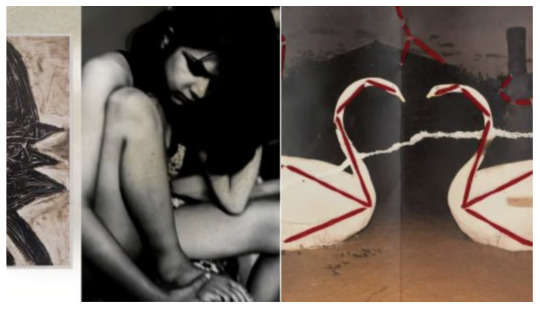
'I’ll be looking at the moon, but I’ll be seeing you.’ Alkazi Foundation
Hari Katragadda, in collaboration with writer and artist Shweta Upadhyay, won the prestigious Alkazi Grant for their ingeniously intense photobook titled 'I’ll be looking at the moon, but I’ll be seeing you.’ Hari said the project was inspired by the opening scene in Jean Luc- Godard’s Le Mépris (1963) and the Billie Holiday song, I’ll Be Seeing You (1944).
"The cinema substitutes for our gaze a world more in harmony with our desires."
André Bazin, French film critic
This famous quote shines brightly on-screen in the opening sequence of Le Mépris. The idea of desire is the thematic crux of Hari and Shweta’s photo book. Hari conceived the idea and translated it into this photo series through the expressions of the protagonist, his partner Shweta. The series is a tribute to the ephemeral moments filled with memories of loves lost and a yearning for the reawakening of love. It attempts to capture ways of seeing and perceiving one’s lover, desire, the lack thereof, and the heartache that follows a search for the elusive other...
#Hari Katragadda#Shweta Upadhyay#'I’ll be looking at the moon#but I’ll be seeing you.#photobook#photobooks#books
33 notes
·
View notes
Text

André Bazin, April 18, 1918 – November 11, 1958.
34 notes
·
View notes
Text
The 400 Blows/Les Cuatre Cents Coups (1959)
By Cris Nyne
The directorial debut of pioneering French filmmaker, François Truffaut’s The 400 Blows, left a lasting imprint on the timeline of international cinema. To know Truffaut’s history before becoming director makes the film even more of a remarkable achievement. His life began as a troubled youth, engaging in petty crimes and was well on his way to a path of self-destruction. It was in his late teenage years when recognized film critic André Bazin would take Truffaut under his wing and give him a job as critic for the film magazine Cahiers du cinéma. During this time, Truffaut would become recognized as a brutal critic of French films. His infamy stretched to Festival de Cannes, where he would be denied accreditation in 1958. The following year in 1959, Truffaut would get his revenge by being crowned Best Director for The 400 Blows at Cannes. This all by the age of 27. Truffaut would continue to turn the film industry on its head and help pave the way for what today is known as French New Wave.
“If the New Wave marks the dividing point between classic and modern cinema (and many think it does), then Truffaut is likely the most beloved of modern directors -- the one whose films resonated with the deepest, richest love of moviemaking.” -Roger Ebert August 8, 1999
The 400 Blows is a semi-autobiographical tale that follows the young star Jean-Pierre Léaud as the mischievous Antoine Doinel. Antoine is humiliated by his teacher, skips school, steals, and smokes cigarettes while contemplating a better life A life away from his father’s failures and his mother’s affairs. Both parents find themselves exhausted of all options for their son (or the lack of attention they care to provide) and send him off to a school for troubled children. From the beginning of the film, his parents seem to have other priorities in filling the hole in their marriage, and Antoine is essentially a victim of having too much unsupervised time on his hands. By the end of the film, Antoine is contemplating his life outside of the observation center for delinquent youth. He makes a dash for it.
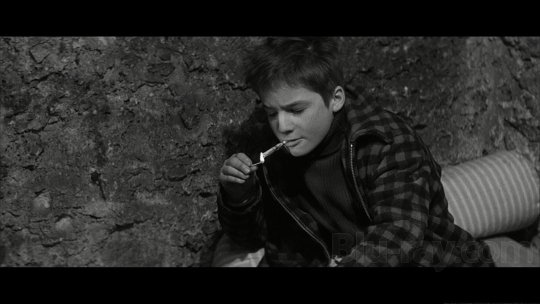
Source: Blu-ray.com
“The movie is full of actual incidents from Truffaut’s childhood, including his fabricating his mother’s death as an excuse for truancy. Few movies have been so personal.” -J.Hoberman, The New York Times September 21, 2022
The movie was well received by audiences and critics alike. He won Best Director at Cannes in 1959, as well as a nominee for the Palme d’Or, the highest prize awarded at Cannes. The French regional newspaper Nice-Matin claimed The 400 Blows to be “A Masterpiece”. The chemistry between Léaud and Truffaut was strong. They would go on to make three more feature films with Léaud revising his role as Antoine Doinel, Stolen Kisses (1968), Bed and Board (1970), and Love on the Run (1979). Currently, Rotten Tomatoes lists The 400 Blows with a rating of 94%.
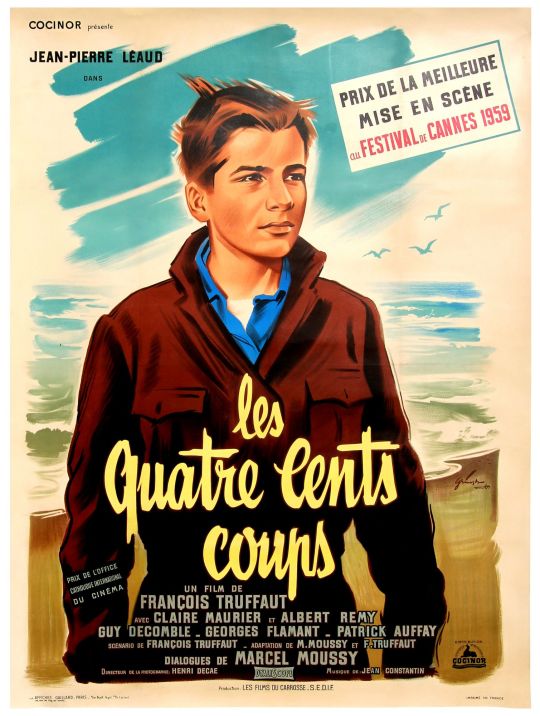
Original Movie Release Poster
The film is in black and white and is shot in a very personal manner. There are lots of close-space encounters that make you feel as if you are squeezing into the room with them. The house that Antoine lives with his mother and father is very small. During one scene as Antoine is sleeping, his mother, Gilberte Doinel (played by Claire Maurier), comes home after a long night and cannot open the door all the way as it is stopped by the mattress that Antoine sleeps on. There are many fun street scenes shot from different angles- subterranean, street-level, and roof tops, that portray Antoine and his friends plotting and scheming around the streets of Paris. There are a few scenes that follow the main character along a stretch of blocks, and I found myself thinking about how smooth the camerawork was.
youtube
During its filming and release date, The 400 Blows took the idea of conventional filmmaking and shredded the blueprint. The director was only known as a stubborn critic and the main star of the film was completely unknown. The script was a unique story, one that, for the most part, Truffaut had lived and had made it through to tell the tale of a rebellious and delinquent child on a bad path. A child that by today’s standards would probably be diagnosed with an attention deficit disorder and prescribed medication. What was once an extremely unconventional approach to filmmaking has now become a standard in delivering a storyline. Truffaut’s confidence in leaping from critic to auteur has left a rippling effect that you can still see over 7 decades later.
7 notes
·
View notes
Text
#TalkieTuesday Jacques Tati in a 1958 interview with André Bazin and Truffaut on inspiration, Buster Keaton. He slightly misremembers the scene - thanks to @DannyDrinksWine on Twitter!
#talkie tuesday#buster keaton#jacques tati#quote#kathryn mcguire#donald crisp#the navigator#1920s#silent era#silent movies#vintage hollywood#ibks#the international buster keaton society#buster keaton society#the damfinos#damfino#damfamily
4 notes
·
View notes
Text
The History of Video Art
readings listed below:
A History of Video Art (2nd Edition) - Chris Meigh-Andrews
Television: Technology and Cultural Form - Raymond Williams
Video: The Distinctive Features Of The Medium - David Antin
Video: From Technology to Medium - Yvonne Spielmann
Video: The Aesthetics of Narcissism - Rosalind Krauss
The Autobiography of Video: Outline for a Revisionist Account of Early Video Art - Ina Blom
Performance, Video, and the Rhetoric of Presence - Anne M. Wagner
The Evolution of Film Language - André Bazin
Image after Image: The Video Art of Bill Viola - Chris Keith
Video Haptics and Erotics - Laura U. Marks
The Temporalities of Video: Extendedness Revisited - Christine Ross
Video/Media Culture of the Late Twentieth Century - John G. Hanhardt and Maria Christina Villaseñor
Analog Circuit Palettes, Cathode Ray Canvases: Digital’s Analog, Experimental Past - Gregory Zinman
The Unifications of the Senses: Intermediality in Video Art-Music - Holly Rogers
The Modernist Event - Hayden White
Ken Jacobs: Digital Revelationist - Malcolm Turvey
Reverse Shot (Dialogues with Sky Hopinka, Tiffany Sia and Emma Wolukau-Waanambwa) - Emily Watlington
From Nostalgia to Anachrnoy: Omer Fast, Michael Robinson, and Home Video Appropriation - James Hansen
Gillian Wearing, Private I - Nancy Princenthal
Like Life (Review of Cao Fei) - Eleanor Heartney
John Smith: Everyday Disruptions - Mark Prince
Ulysses Jenkins: A Griot for the Electronic Age - Paul Von Blum
From Narcissism to the Dialogic: Identity in Art after the Internet - Melissa Gronlund
The Skin of the Film: Intercultural Cinema, Embodiment, and the Senses - Laura U. Marks
13 notes
·
View notes
Text
I talk about Will Wood the way André Bazin talks about Vittorio De Seca
3 notes
·
View notes
